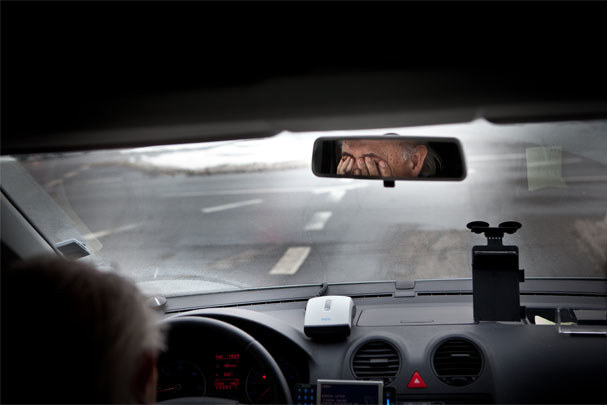
There's arguably no bigger threat to road safety than driving with lack of sleep or falling asleep behind the wheel. Not only does it compromise your safety, but it increases the chances of you seriously injuring other road users.
It's likely that we've all driven at some point when tired, but the impact of lack of rest and drowsiness on your driving ability is huge. Understanding how lack of sleep affects driving is crucial for ensuring safety on the road.
To make you aware of the dangers, car leasing experts at Nationwide Vehicle Contracts explore the effects of lack of sleep and driving and how it can influence your performance behind the wheel.
There's no doubt that lack of sleep hinders your driving abilities. According to Brake, a UK road safety charity, 10-20% of all crashes worldwide are estimated to be caused by driver fatigue, often linked to lack of rest.
Research has also shown that driving with lack of sleep affects performance the same as low-level alcohol intoxication, so it's essential you have a good night's sleep before hitting the road. Understanding how lack of sleep affects driving is crucial for your safety.
According to Sleepstation, being awake for 18 hours can have the same impact on your ability to drive as being over the drink-drive limit in many countries. Not good!
Lack of sleep hinders your driving ability in a range of ways, including:
Physiological Effects
- Impaired reaction times - When you're sleep-deprived, your reaction time increases, which is extremely dangerous when driving. An essential part of road safety is reacting in time to other road events, and sometimes, split seconds can make a difference. Driving while sleep-deprived can thus make it difficult to react to changing road conditions and other road users.
- Decreased alertness - Our overall alertness and vigilance decreases when we're tired. We might not notice a red light or change in the speed limit, and thus put ourselves and other road users at risk.
- Microsleeps - You might also experience microsleeps, which are short periods of sleep. Usually lasting just four or five seconds, microsleeps cause us to be unresponsive at the wheel and mean we don't take any evasive action in the event of an accident.
Cognitive Effects
- Compromised decision-making - When sleep-deprived, we struggle with complex decision-making tasks, which can translate into poor judgement on the road. We might think we can fit through a gap when we can't or overtake someone when there's not enough room.
- Impaired memory and focus - Sleep is crucial for maintaining good memory and focus, so when we're tired, they decrease. This might cause us to forget where we're going on the road or simply stop paying attention to the road ahead.
- Patience - Our patience threshold decreases when tired. We're more rash with our decisions, which could lead to a more aggressive driving style and habits such as tailgating or overtaking.
First things first, if you feel really tired, don't get behind the wheel. Either stay home or get a lift from a friend or colleague.
If you can't do this, try to ensure you get a good night's sleep, which is more likely if you avoid drinking alcohol or taking any medication that interferes with alertness.
If you're on the road, monitor yourself for signs of sleepiness, including:
- Heavy eyelids or frequent blinking
- Yawning
- Daydreaming
- Drifting back and forth between lanes
- Drooping head
- Missing signs or exits
If you're experiencing any of the above, pull over in a safe location and get some rest.
To avoid sleepiness on the road, also consider the following tips:
- Establish a Sleep Routine - Create a consistent sleep schedule where you sleep at the same time every night. Try to avoid using your smartphone or computer before sleep, and introduce a calming routine, such as reading a book or listening to soft music.
- Create a Sleep-Friendly Environment - We humans are a product of our environment, so creating a sleep-friendly environment is crucial to getting a good night's sleep. Try to keep your bedroom around 18 degrees, block outside noise, dim the lights, and get a comfortable mattress.
- Pre-Drive Preparation - Before setting out on a long journey, make sure you're well-rested. Avoid heavy meals that can make you sluggish, and if possible, have a brief nap before driving.
Lack of sleep massively hinders our driving ability. Whether through physiological or cognitive ways, sleep deprivation drastically decreases our performance when behind the wheel.
It causes our reaction time to decrease and leads us to make rash decisions, putting ourselves and other road users at risk. If you feel tired on the road, remember to put your welfare first and pull over in a safe place.
If you're struggling with sleep issues, please seek the advice of a healthcare professional.
Looking for more motoring advice? We produce regular blogs on various topics, such as How Artificial Intelligence is Preventing Accidents and Essential Tips For Safeguarding Your Car During Floods.
We are also one of the UK's largest car leasing brokers, offering a range of leasing deals to suit your every need.
Originally posted: 10th November 2023

